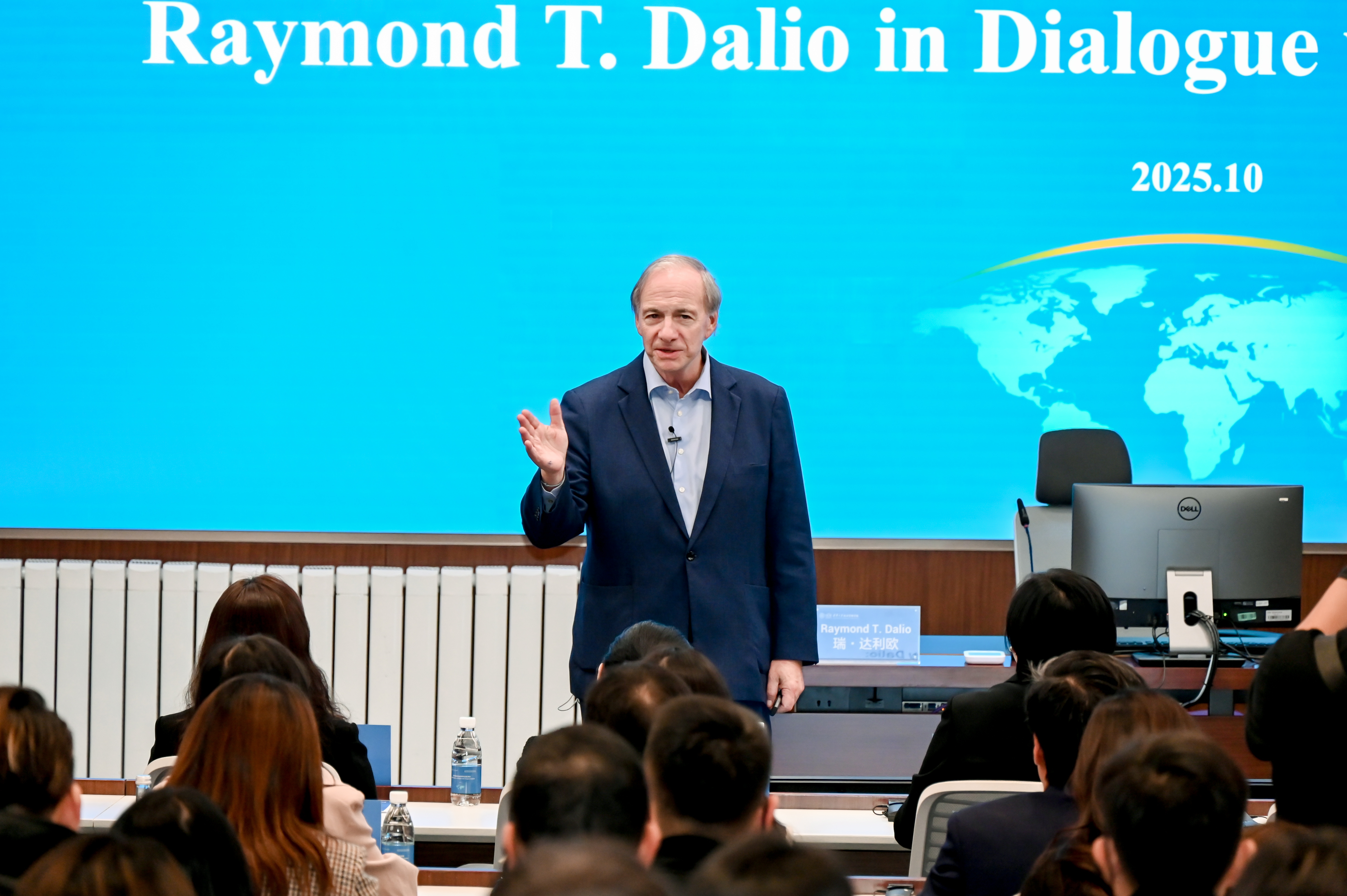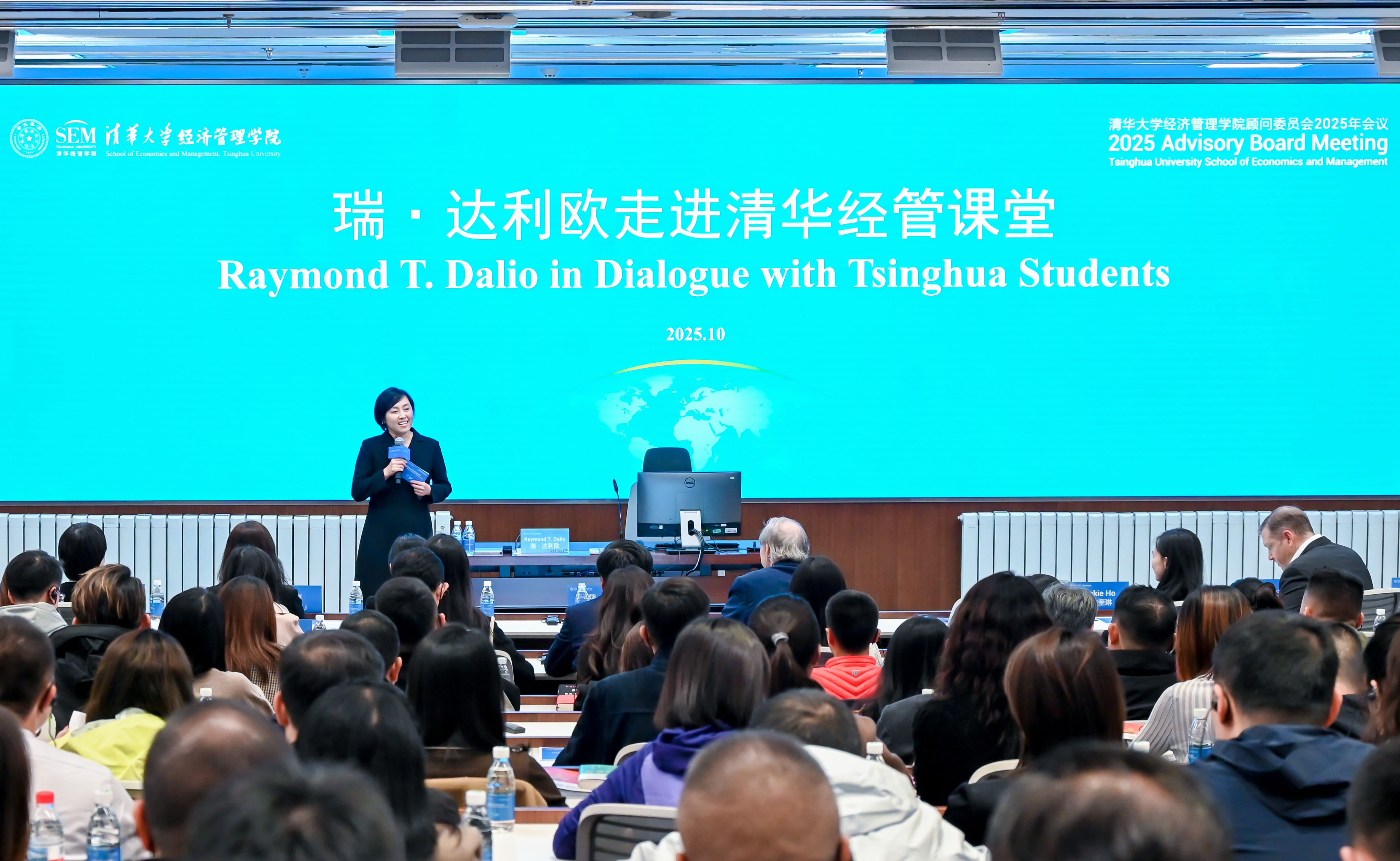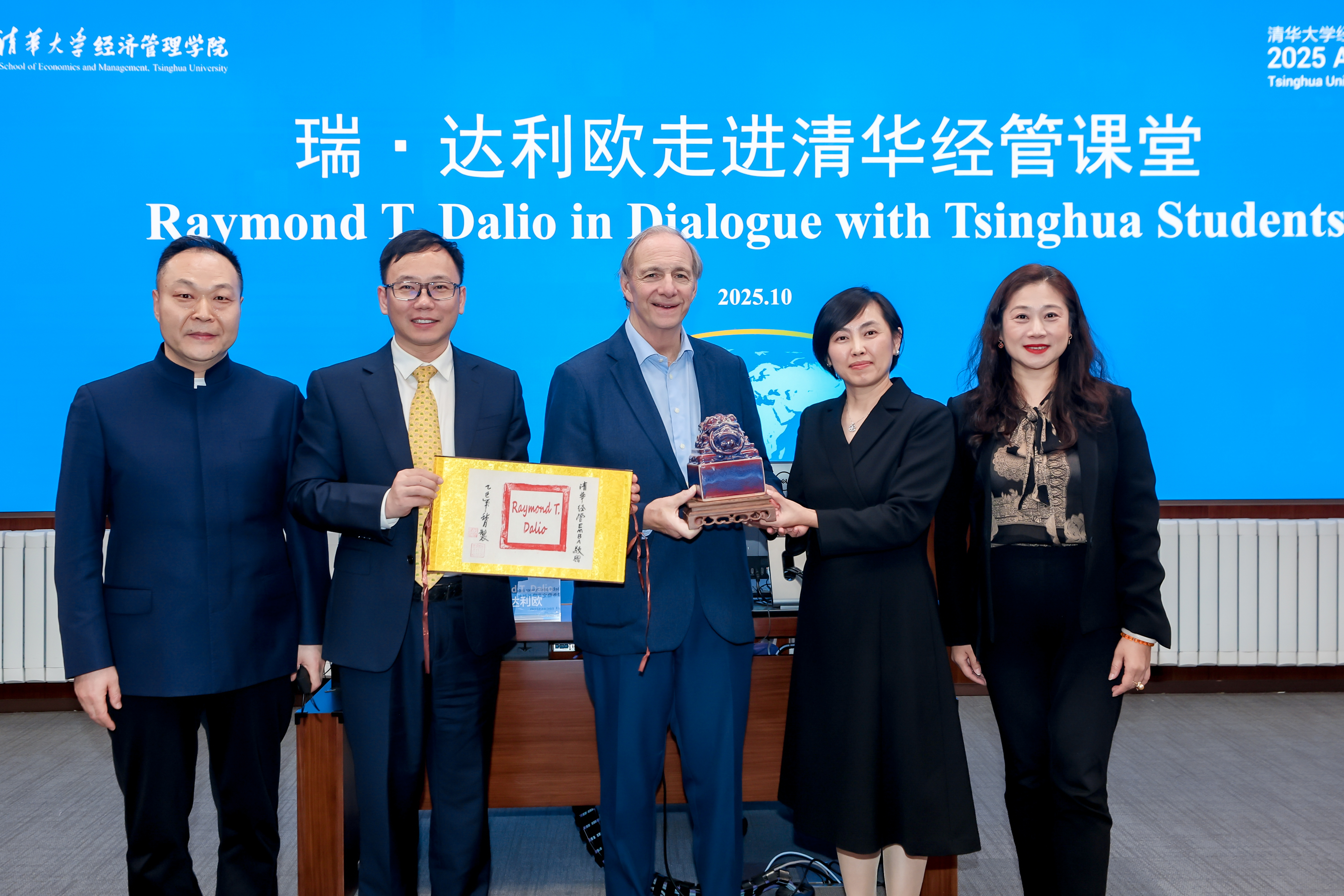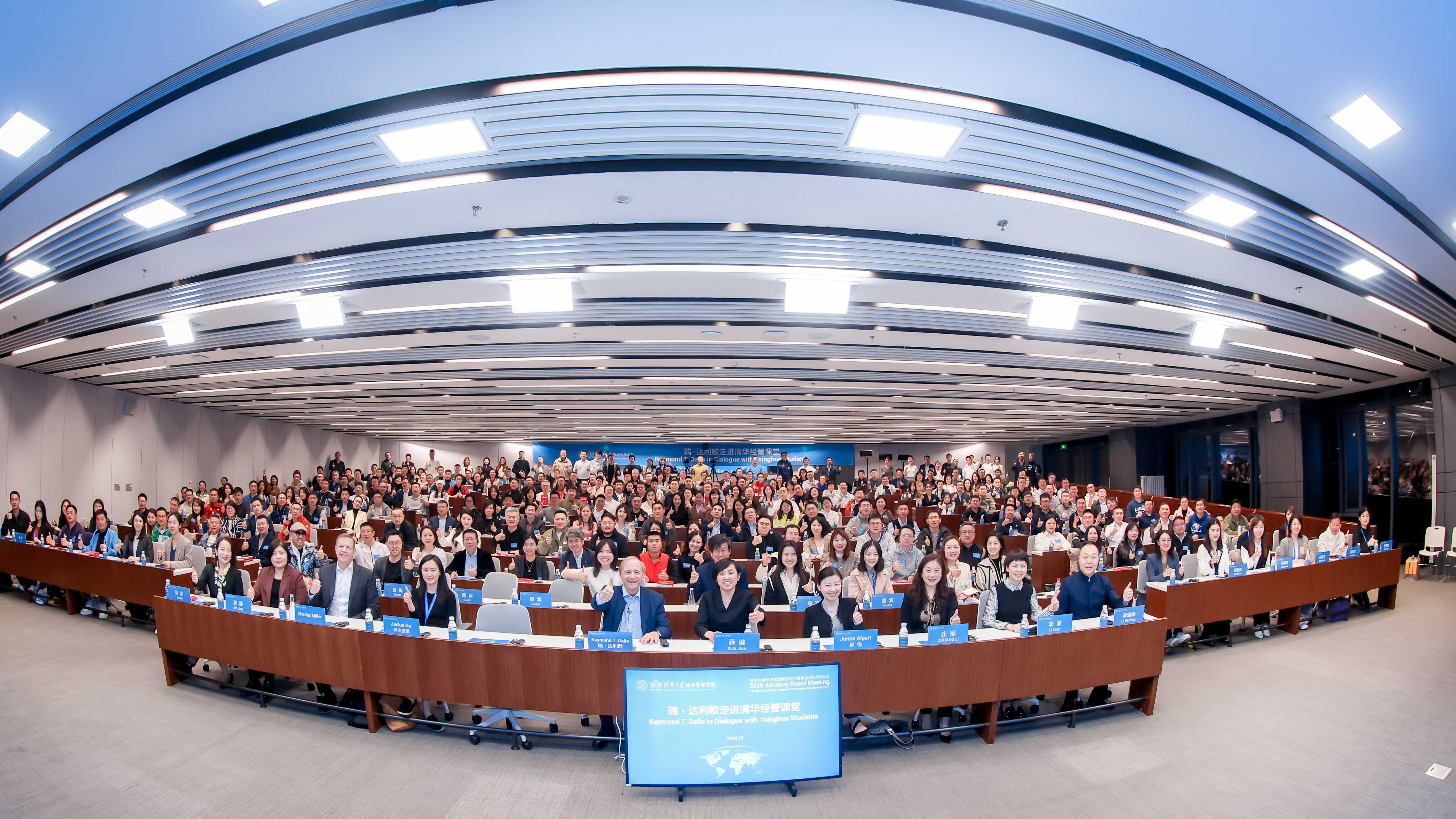Raymond T. Dalio, Founder and Mentor of Bridgewater Associates and member of the Tsinghua SEM Advisory Board, gave a lecture titled "The Changing World Order" at the School of Economics and Management at Tsinghua University (Tsinghua SEM) on October 17, 2025. With more than 300 students from the EMBA, TIEMBA, and Future Tech Future Thinking programs in attendance, Dalio delved into critical themes encompassing investment logic, global economic cycles, and emerging future trends.

Raymond T. Dalio delivers a lecture titled "The Changing World Order" at Tsinghua SEM on Oct. 17, 2025.
The session was moderated by Xue Jian, Senior Associate Dean of Tsinghua SEM, and attended by He Ping, Deputy Dean of Tsinghua SEM; Zhang Chen, Dean Assistant; Gu Yingjie, Director of the Dean's Office; and Zhuang Li, Director of the EMBA Education Center.

Xue Jian hosts the event.
Dalio opened with a reflection on his more than 40 years of connection with China and the enduring friendship he has built with Tsinghua. He spoke highly of China's remarkable progress and expressed appreciation for Tsinghua's vibrant academic community and unwavering spirit of innovation.
Moving on to the core theme of his lecture, "The Changing World Order," Dalio examined the profound shifts in global economic cycles through both historical and contemporary lenses. He emphasized that to understand today's challenges, one must look to history, which "reveals long cycles — the rise and fall of powers and economies."
Drawing on nearly five centuries of financial evolution cycles, Dalio traced the recurring patterns in the rise and decline of reserve currencies. He highlighted that the interaction among debt expansion, inflation, and policy responses - together with domestic political dynamics, international geopolitical forces, natural events, and advances in human learning and technology - constitutes the fundamental mechanism driving global economic fluctuations. "We are now at a new turning point in the cycle," he observed. According to Dalio, rising global debt levels, increasingly complex geopolitical dynamics and the restructuring of the monetary system are redefining the very logic of investment. Against this backdrop, Dalio said, truly strategic investment requires a deep understanding of cyclical patterns and the capacity to navigate uncertainty with clarity and foresight.
Drawing on his extensive global investment experience, Dalio responded to questions on topics such as investment strategies in an age of uncertainty, the capital logic of technological innovation, and how to sustain learning and growth amid complexity. He noted that market fluctuations are inevitable, emphasizing that the key lies in building a balanced and resilient portfolio capable of withstanding cyclical shifts and external shocks. In today's complex global landscape, he stressed, clarity of thought and flexibility of strategy are paramount. "The essence of investment is not to predict markets but to understand balance and risk - to structure assets intelligently and maintain stability amid volatility," he said.
When asked how to sustain growth and maintain sound judgment in uncertain times, Dalio shared what he believes to be a fundamental principle: continuous reflection and open learning. "Pain plus reflection leads to real progress," he said, highlighting that true learning stems from an objective understanding of reality and the constant recalibration of one's own thinking. He encouraged students to engage with diverse viewpoints in a spirit of "seeking common ground while respecting differences," gaining insight through multidimensional perspectives.
"Whether in investment or in life," Dalio concluded, "the most vital capacities are learning, reflection, and adaptation. Reality is always changing – only evolving cognition can guide you through the cycles."
Xue Jian delivered closing remarks, expressing appreciation for Dalio's insights. She encouraged students to apply the ideas he shared to their professional practice and personal development – broadening their perspectives, deepening their thinking, and embracing a changing world with openness and foresight.
Xue Jian, He Ping, and Zhuang Li, together with Li Haifeng (EMBA Class of 2012 alumnus), presented a commemorative gift to Dalio. Xue noted that the "Board Members in Dialogue with Tsinghua Students" initiative serves not only as a platform for sharing global thought leadership, but also as a bridge for transforming ideas into practical strength - empowering students to grow into business leaders with a global vision and an innovative spirit.

Tsinghua SEM faculty and alumni present a gift to Raymond T. Dalio.

Group photo.
Source: EMBA Programs
Editor: Ren Zhongxi
 Latest News
Latest News